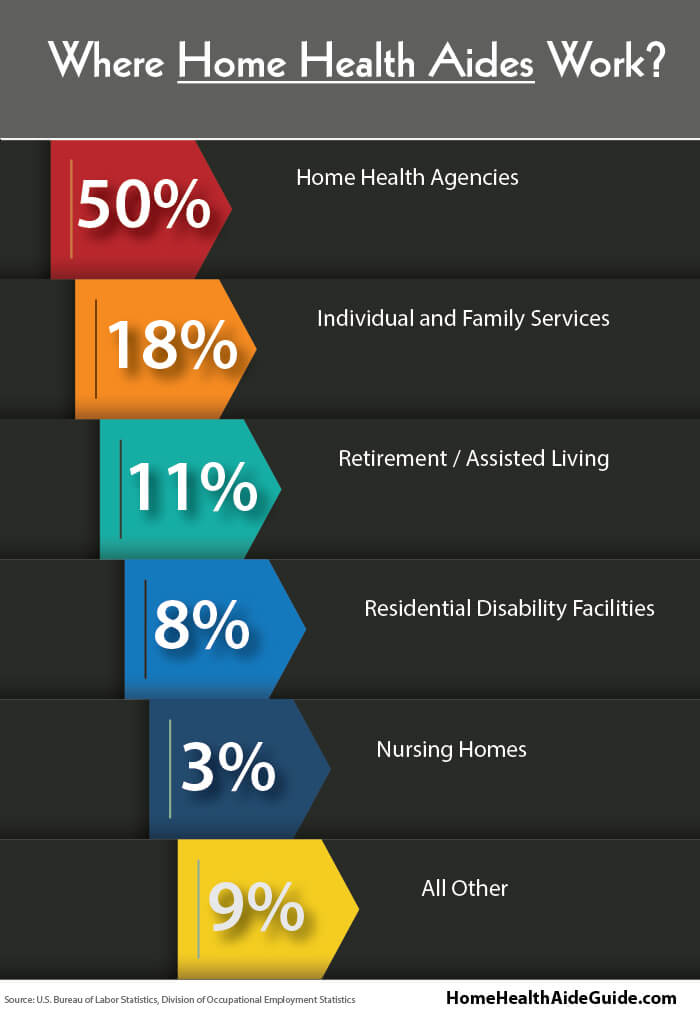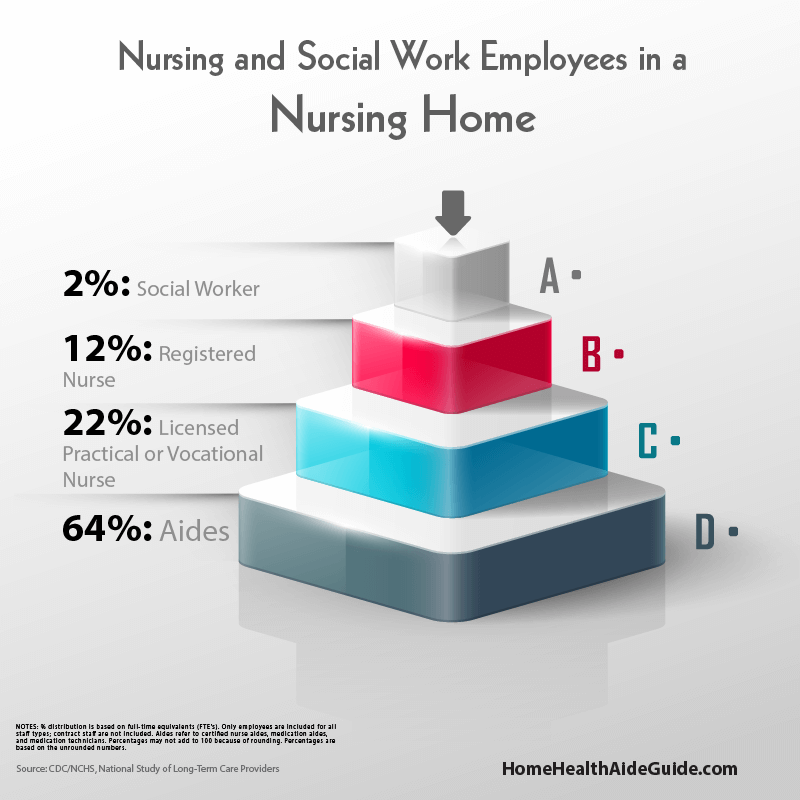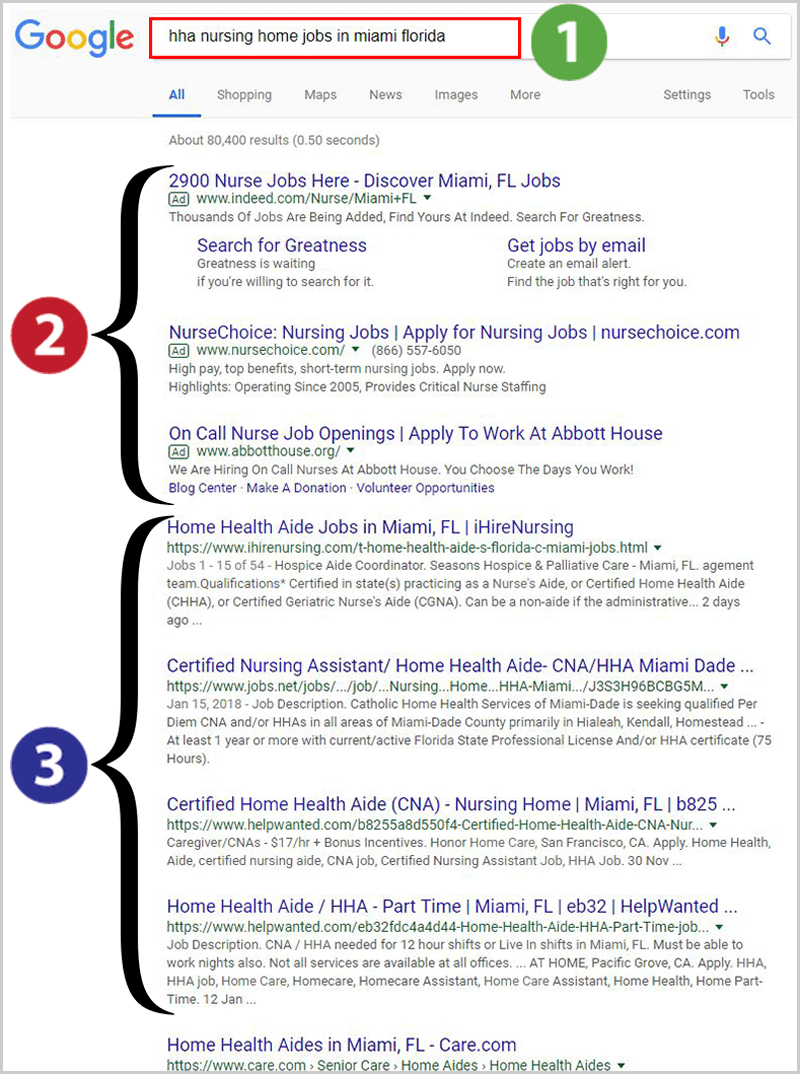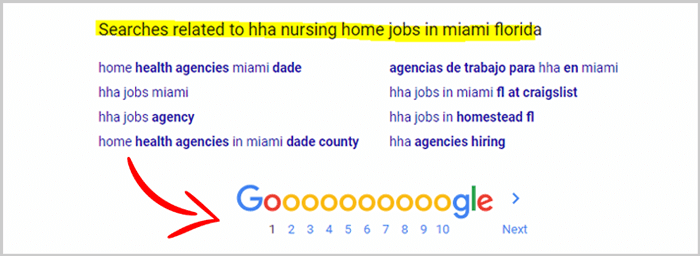Nursing homes are hiring HHA’s – don’t miss your chance!

HHA’s Work in Nursing Home – Best Kept Secret
Can you work as a home health aides (HHA) in a nursing home?
Yes! Jobs exist in nursing homes and are growing at a very fast pace in 2024.
Are you passionate about making a meaningful difference in people’s lives through caregiving? The opportunity you’ve been waiting for is right here – nursing homes are actively seeking HHAs to join their teams, and this is your chance to step into a fulfilling career in healthcare.
HHAs play a vital role in providing personal care and assistance to individuals in need. While many HHAs traditionally work in the comfort of a client’s home, there’s a hidden gem in the industry – nursing homes are increasingly hiring HHAs, and the demand is projected to surge in 2024.
But, here’s the catch – nursing homes often require HHAs to hold certification as a Certified Nursing Assistant (CNA) due to the more medically-oriented nature of their services. However, this additional training opens up a world of opportunities and adds a unique dimension to your caregiving career.
So, if you’re wondering where your HHA journey could take you, what the key differences between HHAs and CNAs are, and what roles you can expect in a nursing home setting, you’re in the right place.
Don’t miss your chance to be part of a dynamic healthcare team and make a positive impact on the lives of residents in nursing homes. Your fulfilling career as an HHA in a nursing home awaits – let’s dive in!
Jobs do exist in nursing homes (sometimes called “skilled nursing facilities”) but because they require more medical training and certification / licensure they will more often hire HHA’s who are also a certified nursing assistant (CNA).
Where Do Home Health Aides Work?

Difference Between CNA vs HHA
While there are some similarities between the two there are differences between a HHA and a CNA.
Home Health Aides (HHA)

A HHA’s primary responsibility is to provide personal care, usually in the home of the client. HHA’s can help clients with daily tasks such as bathing, getting dressed, light housekeeping, preparing meals, eating, and hygiene needs. If HHA’s work for an employer that gets reimbursed with Medicare/Medicaid (most do!) then the HHA must be certified – very simple, though the requirement varies by state.
HHAs are not nurses and their medical training is very limited.
Certified Nursing Assistants (CNA)

CNAs receive the same training in giving personal care as HHAs do, but they also receive additional medical training.
The tasks performed are similar to HHA’s, but CNA’s usually work in hospitals, nursing homes and other long-term care facilities and in health clinics, rather than in the patient’s home. CNAs must have a CNA certification.
They get certified after completing their training and passing an exam. In addition to the tasks of a HHA, CNA’s can take vital signs, change dressings, and works with range of motion exercises for the more infirmed clients. A CNA’s role will include the duties of the home health aide as well as the more technical / medical aspects of the job.

In summary: CNA’s perform the role of a HHA PLUS added responsibilities that require additional training to perform medical tasks; they are paid more as a result of this training.
What is The Staff Composition of a Nursing Home?
There are many employees of a nursing home and most interact with the residents on a daily basis.
Sure, there are behind the scenes folks like maintenance, custodians, groundskeepers and food preparation workers. But most staff has direct contact with residents each and every day.
Here’s a listing of the major groups of staff in a nursing home.
- Nursing Staff
- Dietician
- Social/Event Coordinators
- Administration and Support Employees
Aides in a nursing home (i.e. certified nurse aides, certified nursing assistants, medication aides, and medication technicians) account for about 64% of the nursing staff – there is plenty of demand for these jobs!
The chart below, Nursing and Social Work Employees in a Nursing Home, shows the categories of the nursing staff.

HHA Jobs In Nursing Homes
While most home health aides work in a patient’s home there is employment in nursing homes.
A nursing home is a place for people who don’t need to be hospitalized yet cannot be cared for at home. Medical staff (e.g. registered nurses, certified nursing assistant, home health aides, etc.) tend to patients around-the-clock as needed by the patient – individual needs vary.

The fact that a nursing home patient’s care is too much to be handled in the home environment means he/she requires more medical attention than a HHA can provide.
While you can handle just about all the needs of a patient in the home, they will depend on the rest of the medical team in the nursing home to perform other tasks requiring additional medial training and licensing.
For this reason, many nursing homes will require the HHA to also be a CNA – so she can take on more roles at the nursing home.
Role of a HHA/CNA in a Nursing Home
CNA’s help residents of a nursing home with daily living activities. Tasks may include feeding, bathing, and dressing residents and helping them to get around. They also assist with hygiene and personal-care activities, such as washing hands and combing hair.
HHA TRAINING TRICK
The trick is to differentiate yourself from other by acquiring additional skills such as a CPR certificate, human anatomy lessons, or hospice training/experience.
They also observe residents’ response to treatment and care, document their food and fluid input/output, and monitors their vital signs, such as blood pressure and pulse. And they report changes and any health concerns to the RN.
A HHA/CNA in a nursing home may also be referred to as a nurse aide or orderly.
HHA Recruiting and Hiring in Nursing Homes
Nursing homes seek to attract a caring, compassionate and well-trained staff. The realty is they have a difficult time getting-top tired staff.
Workloads and pay can be a big differentiation between nursing homes and hospitals.
Many aides may start a job at a nursing home but then apply at a local hospital where the pay may be slightly better, the workload easier to manage and benefits may be better.
The Challenge: Retention of HHA’s in Nursing Homes
Turnover can be high for HHA’s and CNA’s. Turnover means how long an employee is with a nursing home and is usually measure on an annual basis.
It is estimated that CNA’s turnover to be on average about one (1) year – that would mean 100% turnover.
The more common reasons for leaving are the workload (they average about 10 – 14 patients per shift) and the low wages.
And because RN’s and LPN’s are in high demand (and a shortage of) those working in a nursing home do not receive adequate supervision and guidance – this leaves HHA’s/CNA’s very frustrated.
Besides, with this great hands-on work experience many head on to the hospital setting where wages are higher and the benefits may be greater.
Training and Supervision
CNAs work under the supervision of RNs.
As a result of shortages of RN’s in nursing homes, CNA’s may not get adequate hands-on advice and training.
You may find yourself overwhelmed and feeling a alone at time; this is that workload environment referred to as it can be demanding at times and gets worse when there is limited supervision.
Advancement for HHA’s
Nursing homes may provide opportunities for advancement by way of increasing responsibilities for HHA’s and CNA’s.

Training programs may exist internally – ask before you start working. You will want to know your options before you start as you may want to advance in the field to take on more responsibility and make more money!
Looking For a Home Health Care Job In a Nursing Home
There are thousand of jobs available in the fast-growing health care industry. From adult day service centers to home health agencies to nursing homes.
In 2014 there more than 15,000 nursing homes! That great news for you, right?
Sort of:
You may get hired as a HHA but your employer may prefer, or insist that you become a CNA.
Being a CNA will mean you can assume more responsibility helping patients with daily activities and some of their medical needs – you’ll be limited as a HHA in a nursing home without advancing just a little to a CNA.
There are many reasons to becoming a CNA.
- fastest way to enter the healthcare industry
- advance to a LPN, RN, etc.
- training program is only 4 – 12 weeks
- training is affordable; average is ~ $2,000, or FREE
- demand is red-hot; can start immediately
Train To Be a CNA in a Nursing Home
On The Job Free Training
Many nursing homes offer education and training for those wanting to be a CNA.
The training can be anywhere between four (4) to twelve (12) weeks and involves classroom work, facility orientation and hands-on instruction. You will shadow CNA and report to the RN – great way to gain experience!
You’ll be getting free training while you work and chances are you will get a nice pay increase once you become a CNA!
CNA Tuition Reimbursement
If you choose not to participate in on the job training you can jump right into CNA training.
But even this may be free or at a reduced rate… some facilities may offer tuition reimbursement in exchange for a commitment to work after completing the courses.
Here’s how this works:
- Work as HHA at nursing home
- Take CNA courses, night / weekends
- Nursing home pays for your courses
- Get certified as nurse assistant
- Work as CNA for nursing home
- stay there for a defined time period in exchange for them paying for training
Four (4) Easy Steps to Finding a Job In a Nursing Home
- Search Local Nursing Homes
- Take Notes
- Ask These Key (!) Questions
- Start Applying

Step #1 – Focus and Search
Focus on nursing homes where you will be working.
No matter where you are in the country there are opportunities. Why focus your efforts across the state? Look locally as that is where you will be working.
If you’ll be working, for example, in Miami then look there.
Load your favorite search engine and type in the search bar:
“hha nursing home jobs in Miami”
Take a look at these sample results using Google:

Let’s break down how to get these results.

It’s perhaps no secret that Google is the best place to search the internet. It will give you the best and most relevant results whether you’re looking for a job like this or anything else.
In the search box type in what you’d like to learn more about and withing seconds; try it now, Google.com.
Look at all these great results – this shows the top ones; if you scroll down in your results you’ll see many more.

At the top of the listing you may see items that have “Ad” next to the listing.
There’s nothing wrong with following up and researching the advertisements. Be cautious, they may not be a very good match to what you searched for. They paid the search engine for this placement on top with the hope that you will go to them first.
The rest?

Well, this is where you will see the majority of what you are looking for.
There will be lots for job boards and recruitment firms (e.g. Indeed, Monster, HelpWanted, etc.); that’s OK as the nursing home is paying them to look for people like you.
Most are very reputable firms and they, too, are eager to fill all the open positions in healthcare – they get paid very well to fill these positions!
If you scroll to the bottom of the page of search results you will see some great information.
Google will have a listing of other “search terms” you may want to use to help. Click on a few of those an you will see for yourself.
There is also a listing of pages (1 2 3 4 5…) you can go to to see even more listings.

Easy does it:
Don’t get overwhelmed in the beginning. You’ll get used to this and be a pro in no time.
The best part is you can’t do anything wrong, just click away and have some fun.

Step #2 – Take Notes
Start to click through the listing that appeared on your screen.
Go to the websites; look around and get a quick feel for the companies – first impressions are everything!
On their website, click some of the example links below:
About Us: how long have they been in business?; are they affiliated with a larger / national company?; what geographic areas do they serve?
Services Offered: this will highlight some of the services they offer their patients. Examples may include: rehabilitation, wound care, hospice, and diabetes care.
Employment Opportunities: the demand is very high for aides so many companies show this information on the front page. This is where you will find about the training that’s required to work for them and if they offer it for free, or low cost.
Begin to make contact with the ones that may be of interest to you.

Don’t email them… please call them on the phone (if they provide a phone number on the website).
Here’s why.
First, you find if they are legitimate. If you reach a machine, leave a message and no one calls you back within a day then scratch them off the list.
Second, as you are speaking with someone you will get a feel for how they act. Are they rude, short with you and don’t have answers to your questions? Scratch them off the list.

Step #3 – Ask Questions
Ask away.
Here’s a suggested list of questions that you may want to have answered. This helps to narrow the selection.

Do you hire home health aides?
Get right to the point… even if the answer is no get more information as you never know when you may come back to this nursing home.

Is it possible to become a certified nursing assistant while working for you?
They may not be prepared to answer this right away as perhaps they are not asked this question often. Don’t be afraid to push just a little bit. Maybe they will train people to be a CNA but just thought about it before!

Who will do the training?
Registered nurses, or referred to as a “RN”, conduct CNA training.

Are you accredited and state approved?
This may not make sense now but as you narrow your selection it will.
You only want to work for an nursing home that has a state approved curriculum (if they will be doing the training in house). And if they are accredited, that’s even better.

Where does the training take place?
Silly question? The headquarters of the company may be a couple of miles from your house but the training itself could be at a centralized training classroom. Better to know this upfront before you make a training commitment.

How long is the training?
This can run anywhere from 4 weeks to 12 weeks; ask how long theirs is. Some may be bound by state requirements. Also ask if it is full time or part time – some firms will allow you to take your time and take a few classes a week but these are few and far between.
Remember, the goal here is to find, and take advantage of, CNA training. When companies offer no cost training they want to train you efficiently; which means you’ll be going full time for several weeks.
Full time means Monday – Friday for three (3) weeks.

Are there any hiring requirements?
You may not want to ask all of these this early but these are standard requirements you should be aware of.
- 18 years of age or older
- required to pass an entrance exam
- requires a high school diploma / GED
- provide photo ID and Social Security Card
- deposit for books / supplies
- rug-screening test and background check
- need to lift up to 50 lbs.
You’ll have a full list of requirements long before you start.

What is the cost of any training?
This question makes more sense than “Is it free?” as this sounds like you are more interested in something for free than working with/for the company. They want to make sure you are the right fit for the company and you’ll be a great HHA / CNA – that’s how you want to sell yourself.
Once you ask the question (“What is the cost of the training?) they will tell you is it’s free or if they charge anything. Sometimes websites are not updated so this is why you are asking – you want the most up-to-date information.

Are there any others costs I should be aware of?
There could be other expenses that are part of the training.
You don’t need specifics on all these items this early in the game but you should be aware of any extra costs such as:
- Registration Fee
- Textbooks
- Backgrounds check / fingerprinting
- Board of Nursing fee for CNA certificate
- Nursing scrubs

Is there any commitment to work? If so, for how long?
If the nursing home offers free training then they will most likely make you to work for them; and for a certain amount of time.
Look at it from their perspective for a moment: they are providing you with approximately $3,000 worth of training for free.
They don’t want you to take advantage of this great opportunity, get your CNA title and then go work for a competitor.
They are giving you something, now you need to give them something.
You may need to work for them for six (6) months. Signing a commitment letter even before you start will also be required. Read the letter and if you don’t understand something ask.

Step #4 – Start Applying
By now you’ll have a good idea of your choices for free HHA / CNA employment.
If you don’t have a good selection of companies then start your search again – starting with Step #1 above.
Schedule meetings with the firms you’d like to work for and start the application process.
A typical map to employment includes these steps:
- Meet with company
- Complete Employment Application
- Name, address, education, references and work history complete with names, phone numbers, and dates of employment.
- Criminal Background Check
- Provide Required Documents
- Driver’s License, Passport or Alien Card
- Social Security Card
- Car Insurance Certificate
- CPR Card
- Employee Health Statement
- HIV Training?
- Alzheimer’s Disease Training?
- Medication Assistance Training
- Commitment Letter
Processing the job/training application may need to be online so after you’ve completed it make sure you give them a call to see if they have received it.
They will schedule an interview and let you know what exactly they need to perform your background check and a pre‐employment physical.
You’re on your way – stay in touch with them to let them know you’re very interested in moving along the employment process.
The company will need to check your references. This may take a little extra time as they get in touch with the folks you’ve listed on the application.
In conclusion:
HHA jobs in nursing homes do exist.
Home health aides are in demand, not only at home health agencies, but in nursing homes as well.
Because those needing care in a nursing home require more medical attention employers often hire certified nursing assistants as opposed to home health aides.
Many nursing homes hire home health aides who will perform very basic tasks; but if they want to advance in the health profession (either in that facility or get a job in a hospital) they will need to become a CNA where the pay is better, the workload more manageable and greater benefits may be afforded.
Follow the very simple four (4) steps to finding a job in a nursing home and you will be on your way to a very rewarding and in-demand profession.
Sources:
Harris-Kojetin L, Sengupta M, Park-Lee E, et al. Long-term care providers and services users in the United States: Data from the National Study of Long-Term Care Providers, 2013-2014. National Center for Health Statistics. VitalHealth Stat 3(38). 2016.

